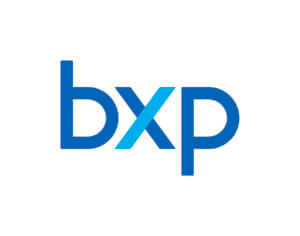Decoding Business Lingo: Key Terms Every New Founder Should Know
Starting your own business means stepping into a world filled with new language — acronyms, contracts, and unfamiliar terms that can feel like a second language. Whether you're preparing to register your LLC, secure funding, or hire your first employee, understanding key business terminology can help you make smarter decisions, faster.
This guide offers a friendly primer for first-time entrepreneurs, providing clarity on terms you’ll see in legal documents, marketing plans, and financial projections.
Foundational Terms Every Entrepreneur Should Know
These are the core business terms that show up early and often in any entrepreneurial journey:
|
Term |
Definition |
Where You’ll See It |
|
LLC (Limited Liability Company) |
A legal structure that separates personal and business assets. |
During business registration, contracts. |
|
EIN (Employer Identification Number) |
A unique number issued by the IRS for business tax purposes. |
Tax filings, bank accounts, payroll. |
|
Operating Agreement |
A document outlining ownership and management structure in an LLC. |
Internal governance documents. |
|
Gross Revenue |
Total income before any expenses are subtracted. |
Income statements, pitch decks. |
|
Net Profit |
What’s left after all expenses are paid — your actual earnings. |
P&L statements, investor discussions. |
Contracts and Commitments: What to Know Early
Among the first documents you may encounter is a letter of intent — a powerful, non-binding tool in business transactions.
A letter of intent outlines the key terms discussed between parties before a formal agreement is signed. It helps establish trust and align expectations when forming partnerships, acquiring a business, or setting terms for investment. Businesses often use these documents to preview new deals or collaborations before legal contracts like purchase agreements are finalized. Click here for more info on how letters of intent work and how to format one professionally.
Common Terms You'll Hear When Starting Up
-
Bootstrapping – Funding your business without outside investment.
-
Runway – The amount of time your business can survive before needing new capital.
-
B2B vs. B2C – Business-to-Business (you sell to other businesses) vs. Business-to-Consumer.
-
Market Fit – A measure of how well your product meets real customer demand.
-
KPI (Key Performance Indicator) – A measurable metric used to evaluate success.
Spotlight: Notion
For solo founders and growing teams, Notion is a workspace tool that combines notes, databases, and project management in one place. It’s especially helpful when organizing your startup roadmap or tracking investor conversations. Use it as a digital command center to centralize ideas, workflows, and templates.
Frequently Asked Questions (FAQ)
Do I need a business bank account to start?
Yes, separating business and personal finances is essential — it helps with taxes, legal protection, and credibility. Services like Bluevine offer fee-free business checking.
What’s the difference between an LLC and a sole proprietorship?
Sole proprietors have no legal separation between the owner and business. An LLC limits your personal liability — and is often a better long-term choice.
Do I need an accountant or can I do it myself?
DIY is fine in the early stages, but once you start hiring or selling at scale, tools like Bench can help you manage bookkeeping and file taxes correctly.
What is a business credit score?
Similar to a personal credit score, it reflects how reliable your business is when it comes to paying debts. You'll want to start building this early, especially if you're planning to apply for funding or vendor accounts.
How do I choose a business name?
Check domain availability, trademarks, and ensure it resonates with your target audience. Services like Namechk can help you search name and social handle availability.
Useful Links to Dive Deeper
-
Learn about business structure types from the U.S. Small Business Administration.
-
Use Score.org to connect with free small business mentors near you.
-
Track funding opportunities through the Grants.gov database.
-
Research business name and logo availability using Namechk.
In Summary
You don’t need to master every business term overnight. But learning the basics — from legal structures to key financial metrics — empowers you to make informed choices, avoid costly missteps, and speak confidently when working with vendors, clients, and partners.
As you grow, continue building your fluency in business language. You’ll be better equipped to hire, pitch, and lead — and you’ll gain the clarity needed to turn your entrepreneurial vision into a viable, thriving venture.
Discover the vibrant community of Waltham and unlock new opportunities by joining the Waltham Chamber of Commerce today!
This Hot Deal is promoted by Waltham Chamber of Commerce.
















